No word if GM rice certificates extended
Updated: 2014-08-19 00:52
By Hou Liqiang(chinadaily.com.cn)
|
||||||||
The commercial cultivation of genetically modified rice in China may still be far in the future as the safety certificates of two varieties of GM rice have expired and it is unknown if they have been extended.
The expiration of the certificates came only days after a report that GM rice has flowed into the local market, although no GM rice may be commercially grown or imported to China.
Only the two varieties of GM rice have received safety certificates in China, which is the first step in gaining permission for commercial cultivation.
Both varieties, including BT 63, were developed by Huazhong Agricultural University in Wuhan, Hubei province. They received safety certificates on Aug 17, 2009, after an 11-year evaluation by the Ministry of Agriculture.
Each certificate is valid for five years but may be extended on application to the ministry one year before the expiration date.
GM crops must get another three documents, including a business certificate and seed production license, before they may be commercially cultivated. No staple food grain in China has yet obtained all those documents.
If the certificates of the two varieties were not extended, their developers will have to apply for new certificates as if they are new varieties, Luo Yunbo, dean of the College of Food Science & Nutritional Engineering at China Agricultural University, told China Central Television.
"It takes at least two years to get new certificates," Luo said.
Neither Huazhong Agricultural University nor the Ministry of Agriculture responded to a China Daily request for comment on the issue.
Yan Jianbing, a professor at Huazhong Agricultural University and a member of the research and development team of the two GM rice varieties, told thepaper.cn he is "not at liberty to disclose whether the certificates have been extended or not".
GM rice may not be cultivated commercially in China or imported from elsewhere. However, CCTV reported late last month that it sent five rice samples bought at random from Wuhan market for testing and found three of them contained BT 63.
The incident caused a panic and many local buyers turned to rice produced in other parts of China in an attempt to avoid GM rice. According to media reports, sales of rice dropped by 80 percent in some markets in Wuhan after the incident.
A driver surnamed Liu told China Daily he has been considering what rice to buy for a while and finally decided to buy rice from Northeast China.
"I have been eating local rice since I was born and have become used to it. The rice from Northeast China is too sticky and gives me a stomachache," said the 55-year-old.
"As Huazhong Agricultural University is located in Wuhan, the GM seed may have slipped into nearby markets. So I think rice from Hubei, and its neighboring Jiangxi and Hunan provinces are also unsafe," he said.
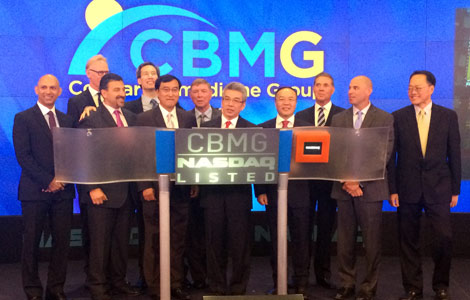
 Chinese biotech company rings closing bell at NASDAQ
Chinese biotech company rings closing bell at NASDAQ
 China can upgrade US transport
China can upgrade US transport
 Jackie Chan's son detained for taking drug
Jackie Chan's son detained for taking drug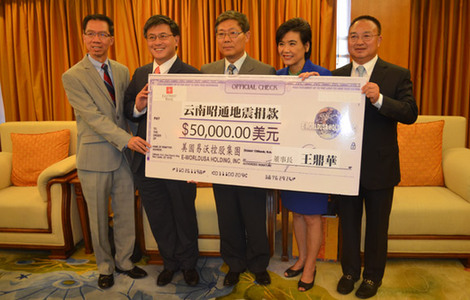
 California Chinese open pockets for quake relief
California Chinese open pockets for quake relief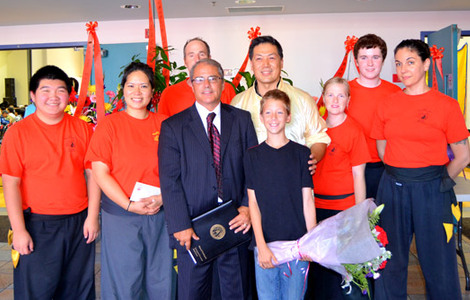
 Showing their skills
Showing their skills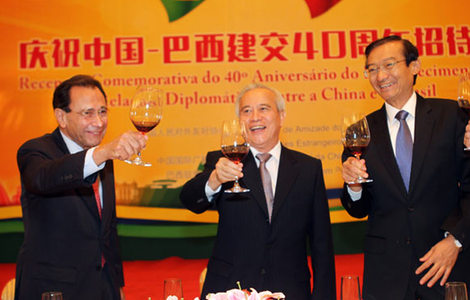
 Unique relation needs further tightening
Unique relation needs further tightening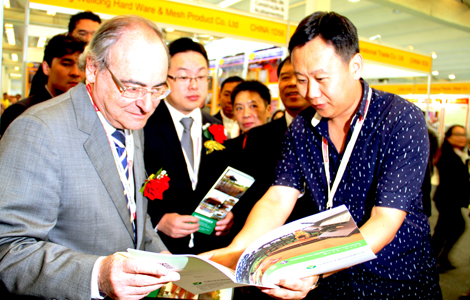
 Trade shows help firms to gain a foothold in Brazil
Trade shows help firms to gain a foothold in Brazil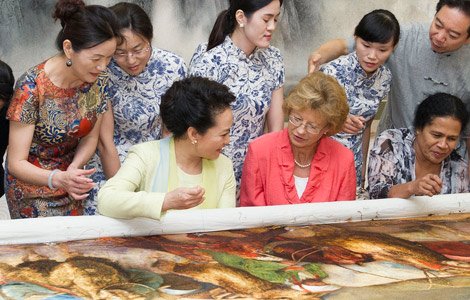
 First lady tours museum with wives of foreign leaders
First lady tours museum with wives of foreign leaders
Most Viewed
Editor's Picks

|

|

|

|

|

|
Today's Top News
China's US debt holdings dip lower, again
Anti-trust team lacks real muscle for enforcement
China bans US pork over additives
US police department uses Weibo to reach Chinese residents
March decries 'Occupy Central'
China to audit government land income in corruption fight
Macao's Chui unveils political platform for chief executive election
Ebola outbreak interrupts Chinese companies in Liberia
US Weekly

|

|






